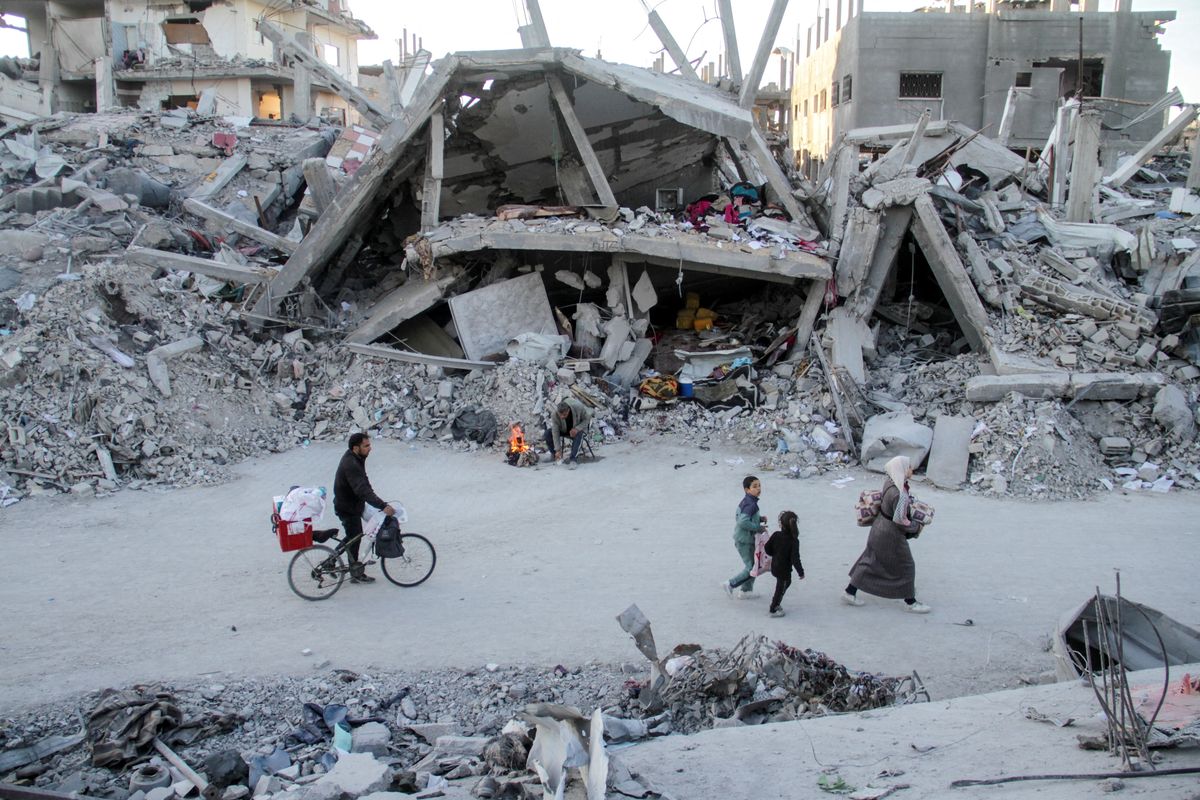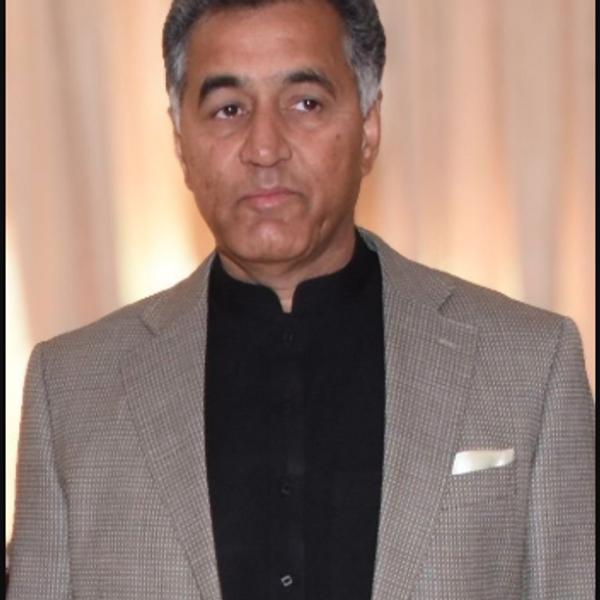Israel-Hamas truce holding though Trump doubts it will last
Ceasefire allows humanitarian aid to flow into Gaza as hostages and prisoners are exchanged, but skepticism over its durability looms.
AFP
News Agency Partner
AFP is a renowned international news agency, delivering comprehensive and reliable reporting on global events, trends, and issues.

Palestinians walk past destroyed homes, amid a ceasefire between Israel and Hamas, in Jabalia Refugee Camp, northern Gaza Strip, January 20, 2025.
Reuters
The Israel-Hamas ceasefire entered a third day Tuesday, while US President Donald Trump said he doubted the fragile deal would hold.
Desperately needed humanitarian aid has begun to flow into war-battered Gaza after Israel and Hamas conducted the first exchange of hostages for prisoners agreed under the terms of the ceasefire.
Gazans displaced by more than 15 months of war have been walking through an apocalyptic landscape to return to whatever remains of their homes, while rescuers trawl the rubble for bodies.
"Gaza is like a massive demolition site," Trump said as he signed a flurry of executive orders following his inauguration.
Asked whether he believed the two sides would maintain the truce, Trump said: "That's not our war; it's their war. But I'm not confident."
Trump had claimed credit for the three-phase ceasefire agreement announced ahead of his return to the White House by Qatar and the United States, following months of fruitless negotiations under his predecessor Joe Biden.
Trump has made clear he would support Israel, and in one of his first acts as president, he revoked sanctions on Israeli settlers in the West Bank imposed by the Biden administration over attacks against Palestinians.
Israeli Prime Minister Benjamin Netanyahu and Palestinian president Mahmud Abbas both congratulated Trump on his return.
"I look forward to working with you to return the remaining hostages, to destroy Hamas's military capabilities and end its political rule in Gaza, and to ensure that Gaza never again poses a threat to Israel," Netanyahu said.
Displaced Gazan Ghadeer Abdul Rabbo, 30, told AFP she hopes that "with or without Trump", the ceasefire will hold and world governments will help "maintain this calm, because we are afraid".
If all goes to plan, during the initial, 42-day phase of the truce that began Sunday, a total of 33 hostages are to be returned from Gaza in exchange for around 1,900 Palestinians.
Over those six weeks, the parties are meant to negotiate a permanent ceasefire.
In Rafah, in southern Gaza, Ismail Madi said that "we have endured immense hardships, but we will stay here. We will rebuild this place."
Three Israeli hostages, all women, were reunited with their families on Sunday after more than 15 months in captivity.
Hours later, 90 Palestinian prisoners were released from an Israeli jail.
In Israel, there was elation as Emily Damari, Romi Gonen and Doron Steinbrecher returned home and appeared to be in good health.
"In Emily's own words, she is the happiest girl in the world; she has her life back," Damari's mother Mandy said on Monday, adding that her daughter was "doing much better than any of us could have expected" even after losing two fingers.
The first group of Palestinians released under the deal left Ofer prison in the West Bank early Monday, with jubilant crowds celebrating their arrival in the nearby town of Beitunia.
One freed detainee, Abdul Aziz Muhammad Atawneh, described prison as "hell, hell, hell".
Another, Khalida Jarrar of the Popular Front for the Liberation of Palestine -- proscribed as a "terrorist" group by Israel and some Western governments -- said prison conditions were harsh and that she had been kept "in solitary confinement for six months".
The next hostage-prisoner swap should take place on Saturday, a senior Hamas official told AFP.
The relatives of the three Israeli ex-hostages called for the release of the remaining 91 captives seized during Hamas's October 7, 2023, attack that sparked the war, including 34 the military says are dead.
Meirav Leshem Gonen, mother of Romi Gonen, said: "We got our Romi back, but all families deserve the same outcome, both the living and the dead."
There was anxiety in Israel over the next phases of the truce, with columnist Sima Kadmon warning in the Yedioth Ahronoth daily that the coming hostage releases may be more painful than the first.
"Some of them will arrive on gurneys and wheelchairs. Others will arrive in coffins. Some will arrive wounded and injured, in dire emotional condition," she wrote.
In southern Gaza, Ammar Barbakh, 35, spent the truce's first night in a tent on the rubble of his home.
"This is the first time I sleep comfortably and I'm not afraid," he said.
"It's a beautiful feeling, and I hope the ceasefire continues."
The war has devastated much of the Gaza Strip and displaced the vast majority of its population of 2.4 million.
More than 900 trucks carrying humanitarian aid entered Gaza on Monday, the United Nations said.
The day the deal came into force, 630 trucks entered Gaza.
Qatar, which played a key role in negotiating the truce, said that 12.5 million litres of fuel would enter Gaza over the first 10 days.
Hamas's October 7 attack resulted in the deaths of 1,210 people, mostly civilians, according to an AFP tally of Israeli official figures.
The health ministry in Hamas-run Gaza said Sunday that the death toll in the war had reached 46,913, a majority civilians, figures the United Nations has said are reliable.










Comments
See what people are discussing